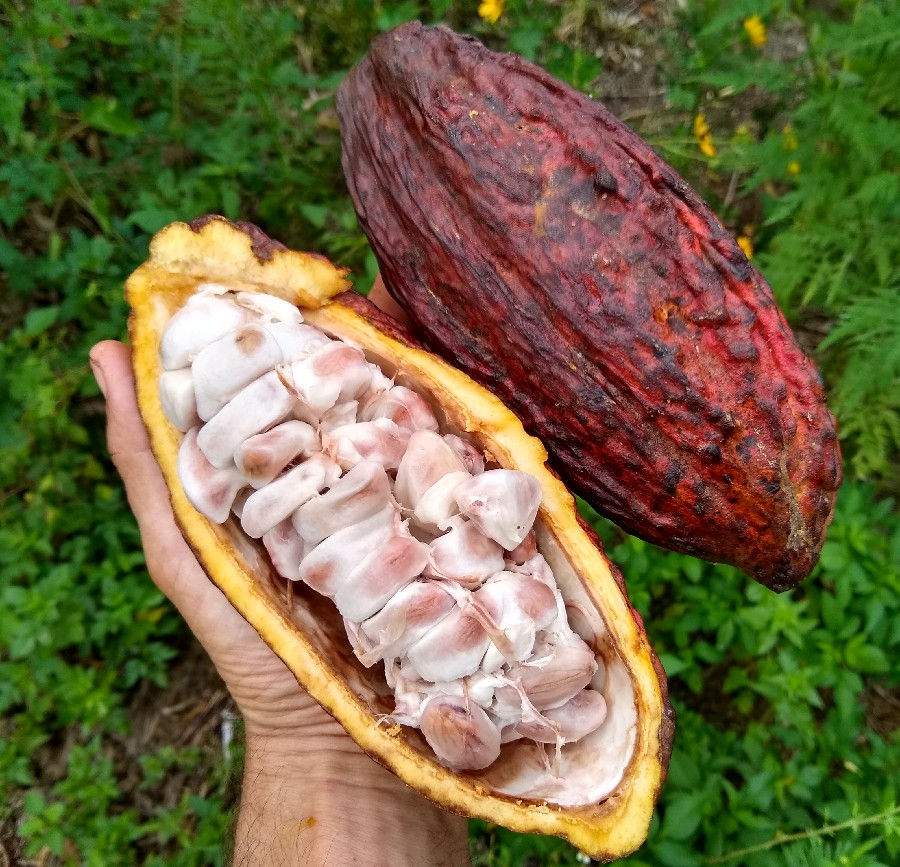
What is Regenerative Farming
And why should you care?
In broad terms, it is a means of growing food that makes a net positive environment (and social) impact. This is achieved by growing food with the purpose of top soil regeneration, increasing biodiversity, improving the water cycle, supporting biosequestration (of carbon and nitrogen), increasing resilience to climate change, and strengthening the health and vitality of farm soil.
.png)
Regenerative farming is also called traditional farming because that is how things were done before the invention of synthetic fertilisers and heavy farming machinery. To understand the damages caused by synthetic fertilisers and modern commercial farming methods; and how we could reverse the detrimental effects, we recommend watching Kiss the Ground on Netflix and this short video:
Benefits of Good Soil
Soil is supposed to be teeming with good micro-organisms (just like our gut, more about that later). Decades of commercial, monoculture farming and use of aggressive synthetic fertilisers and pesticides have all but killed what’s good in the soil; leaving behind a layer of dust (“Dust Bowl of America”). Farmers have no choice but to use even more fertilisers and pesticides, creating the most deadly, vicious cycle the humankind is facing.
Food grown in the regenerative way has a higher nutritional content and taste different (better) because that is how nature intends for a plant to grow—cleverly using a well balanced soil life (a mix of good fungi and bacteria which release nutrients to the plant); and without aggressive synthetic fertilisers and pesticides. It is a bio-richness that fertilisers cannot mimics—every bite is a taste of biodiversity and a healthy ecosystem that is in an upward, positive cycle. It takes significantly longer and more manpower and that is how we make good food—from good agriculture.
There are many practices that a regenerative farmer would adopt: growing seasonally, growing a diverse range of seasonal species (as opposed to monoculture, where only one variety is grown over a large area), no-till farming, using natural, mechanical pest control solutions (instead of pesticides), companion planting, cover cropping,
crop rotation, and most importantly, composting.



Soil and the Human Gut
When our gut is unwell, we experience a range of symptoms—it affects our skin, energy levels, sleep quality…and many more. We need the good bacteria to work for us in order to feel good—we take probiotics and eat better food to restore the balance in our gut and everything feels better again.
Soil works in the same way—it needs a good balance of good fungi, bacteria, and organic materials in order to be “self-fertilising”. Soil health is directly manifested by the condition of the crops, which inspired our
company vision: GOOD FOOD COMES FROM GOOD AGRICULTURE.


Our Farming Method
Farmhouse Productions started in 2020 on a plot that was already certified organic. Our predecessor used all the expensive organic fertilisers and pesticides; however, the crops were not as strong as they could be and often suffered from diseases. We tested the soil and found almost no microorganisms—that was very alarming because it meant the soil was dead.

With good agriculture, we’re able to grow good food packed full of nutrients that your body deserves! Each farmer should adopt practices that work according to their unique farm location and available resources.
The key is to truly understand the principles and to apply as many methods as one can, one step at a time. We believe “No Win Is Too Small” and we encourage everyone to do what they can within their powers, not just in farming but in achieving a sustainable lifestyle.

Reintroducing life back into the soil became our first priority. This is done primarily by using our homemade compost, minimising the use of fertilisers, no-till farming method, companion planting, crop rotation, using mechanical and biological pest control methods (instead of chemical ones). Generally increasing our biodiversity above and below ground.



Composting
A large part of regenerative farming comes down to the quality of the compost we put back to the soil. We each generate kilos of food waste everyday, why shouldn’t it be transformed into something useful, this makes composting the best solution to the world's organic waste pile up!
Farmhouse Productions only uses the following in our composting to achieve the desired quality:
1. Raw vegetable and fruit scraps - e.g. carrot tops, celery bottoms, watermelon skin, banana peel
2. Coffee waste
3. Soy waste
4. Beer waste
5. Cacao husk (or other inedible husk)
6. Woody waste - wood chips, sawdust, herbal medicine waste, compostable paper containers, plant clippings.






If you are interested in finding a use for your raw organic waste, whether it's oyster shells, coffee waste, or others, please contact us and we'll help you find a solution.
Our composting project is not funded by any organisations therefore any contribution, financial, manpower, or otherwise, is appreciated.
Please drop us an email on info@farmhouseproductionshk.com to find out how you can divert more organic waste from the landfill to regenerative farming!


